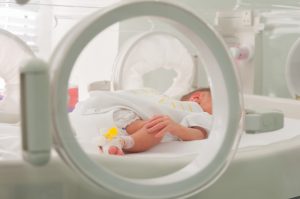Every mother wishes for a pregnancy that is trouble-free and without complications. With the right care and support, this is certainly possible. However, sometimes babies are born early, with serious conditions, or become very sick after birth. In these situations, the Neonatal Intensive Care Unit (NICU) is there to help. The NICU is the primary place for treating newborns who need extra care after delivery. Understanding what the NICU is and its different levels of newborn care can help parents feel more prepared if their baby needs to be admitted.
What is NICU?
NICU stands for Neonatal Intensive Care Unit. It is a special section of the hospital focused on caring for newborn babies who are seriously ill or need extra support after birth. Babies in the NICU may be born prematurely, have health complications, or require special treatments to stay healthy.
In the NICU, advanced medical equipment and a team of skilled doctors and nurses work around the clock to monitor and support the babies. This includes using tools to assist with breathing, feeding, and overall health management.
The goal of the NICU is to provide the care needed for these babies to recover, grow stronger, and eventually go home with their families.
READ: Advantages of Having a Baby in the Neonatal Intensive Care Unit (NICU)
Different Levels of Neonatal Care
A NICU has a team of trained nurses, paediatric doctors, dietitians, and specialists who take care of newborn babies. However, not all NICUs are the same. Different hospitals have NICUs with different levels of newborn care.
In India, NICUs are divided into four levels based on the type of care they can provide. Let’s explore what each level offers:
Level I (Well Newborn Nursery)
NICU Level I is the most basic level of care for newborns. This unit provides essential support such as helping babies who need resuscitation at birth and caring for newborns with minor health issues. It can stabilise and treat babies born between 35 to 37 weeks of pregnancy and sometimes even those born earlier, though these cases may need transfer to a higher-level NICU for more advanced care.
The NICU Level 1 unit is usually staffed by nurses, general doctors, paediatricians, and other healthcare professionals. While it offers basic treatment, it often acts as a temporary stop for babies needing more specialised care elsewhere.
READ: Does Your Baby Need Neonatal Care?
Level II (Special Care Nursery)
A Level II NICU provides intermediate care for newborns who need some medical support but not full intensive care. This unit is equipped to:
- Provide assisted ventilation (help with breathing) and continuous positive airway pressure (CPAP).
- Stabilise and resuscitate preterm or sick babies before transferring them to a more advanced NICU if needed.
This level of care is for babies born after 30 weeks of pregnancy and weighing less than 1500 grams, who may have:
- Immaturity issues like trouble maintaining body temperature pauses in breathing (apnea), or difficulty feeding by mouth.
- Mild illnesses that are expected to improve quickly and don’t require urgent specialised treatments.
It can also support babies recovering from intensive care. Some NICU Level 2 units may provide short-term mechanical ventilation (breathing support with machines) if necessary.
Level III (Neonatal Intensive Care Unit)
A Level III NICU is designed to care for very small or premature newborns who weigh less than 1200 grams or are less than 30 weeks old at birth. It is equipped with advanced facilities such as infusion pumps, oxygen masks, suction devices, incubators, ventilators, temperature-controlled monitors (TC monitors), and machines to track vital signs.
This unit offers 24/7 care with a team of trained healthcare providers, including doctors from Levels 1 and 2. The team includes neonatal nurse practitioners, neonatologists, paediatric surgeons, specialists in paediatric medicine, paediatric anesthesiologists, and paediatric eye doctors (ophthalmologists). It ensures these fragile newborns get the intensive care they need to grow and recover.
Level III NICUs can:
- Provide continuous life support for newborns
- Care for babies born at any gestational age or weight who are critically ill.
- Quickly connect with specialists like paediatric surgeons, anesthesiologists, and eye doctors (ophthalmologists).
- Offer full breathing support, including advanced machines like high-frequency ventilators and treatments like inhaled nitric oxide.
- Perform advanced scans, like CT, MRI, and heart ultrasounds (echocardiograms), and provide fast results when needed.
Level IV (Regional NICU)
A Level IV NICU provides the highest level of newborn care. It includes paediatric specialists and all the expert care and advanced services found in a Level 3 NICU. In addition, it offers specialised treatments like extracorporeal membrane oxygenation (ECMO), which helps babies with severe heart or lung problems, and transport services to safely move babies from the hospital to their homes.
Level 4 NICUs are usually part of large hospitals with the ability to perform complex surgeries to treat serious birth defects or medical conditions that develop after birth.
READ: Premature baby health care at home post-discharge from NICU
Take Away
NICUs are designed to address a wide range of challenges that may arise after a baby is born. Understanding what each level offers can help you choose the right hospital for your delivery. Be sure to research and consult with the best hospitals near you to ensure your baby receives the highest level of newborn care and support if needed.



